Denmark has officially taken over the six-month rotating presidency of the EU Council, with two overarching priorities: security and competitiveness.
The task is usually a tough challenge, but it will be more formidable as a result of the extreme uncertainty and volatility that the European Union faces today.
"Europe is at a defining moment in time," Danish Prime Minister Mette Frederiksen said in her welcome message. "The world that secured our freedom and made us prosper can no longer be taken for granted."
The country inherits from Poland the unenviable title of "honest broker": the chief arbiter among the other 26 member states, moderating complex and fraught debates, drafting tortuous compromises and sitting face-to-face with the European Parliament to negotiate legislation.
For the Danes, this marks the eighth time they assume the rotating chairmanship. Their reputation in Brussels as pragmatic, efficient and cool-headed operators bodes well for navigating the sharp, often intractable divisions between capitals.
Here's what you need to know about the Danish presidency.
The T word
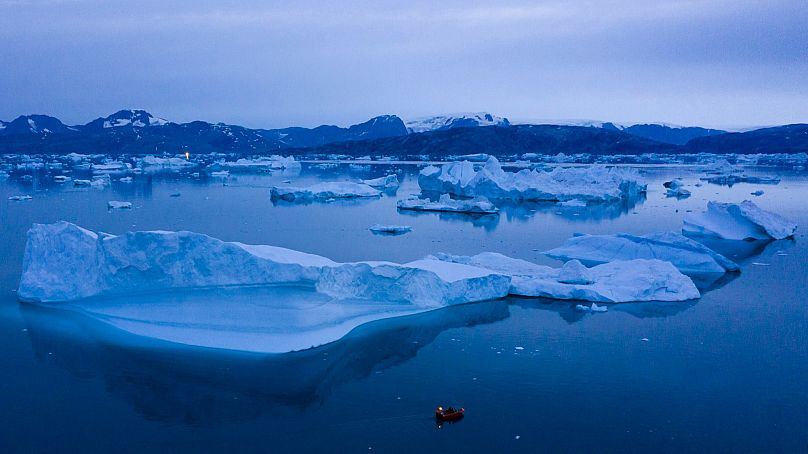
Whether the Danish presidency runs smoothly or descends into chaos might not depend on Brussels but on a city that is more than 6,000 kilometres away.
Donald Trump's return to Washington, DC has deeply rattled Europeans, forcing them into a reactive posturing to protect themselves against the shockwaves unleashed by the mercurial president. Take trade, where Trump is attempting to unilaterally redesign the post-WWII economic order with sweeping, across-the-board tariffs.
The European Commission still hopes a preliminary deal can be achieved with the White House before the 9 July deadline to avoid the worst-case scenario of a 50% tariff. But if the agreement falls below expectations – or if there is no agreement at all – the executive is preparing to hit back with retaliatory tariffs against American-made products.
As the presidency, Denmark will be tasked with ensuring the 27 act as one and close ranks behind the Commission. It is doubtless an out-of-character role: the country is a traditional advocate of free and open markets. Exports account for almost 70% of its GDP, with iconic brands like Lego, Ozempic and Carlsberg sold worldwide.
But for Denmark, Trump does not only represent a trade irritant but also an existential threat: the US president has refused to rule out using military force or economic coercion to seize Greenland, the semi-autonomous territory of the Kingdom of Denmark.
Elusive consensus
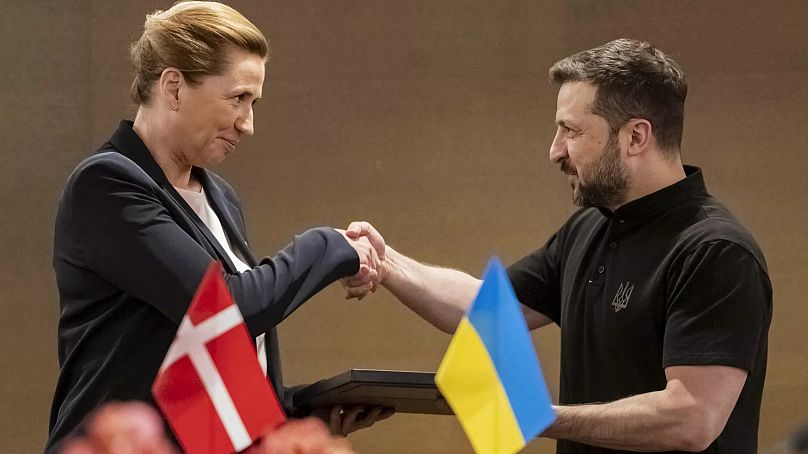
Denmark comes into the presidency at a time when the EU feels besieged by countless international crises, starting with the one closer to home: Russia's war on Ukraine.
From the start of the invasion, Denmark has been a vocal supporter of Ukraine, becoming one of the largest donors of military aid. According to the Kiel Institute for the World Economy, Denmark has individually pledged €8.60 billion in weapons and ammunition, surpassing bigger countries like France, Italy, Spain and Poland.
The Danish presidency is eager to ramp up these deliveries at the EU level and make up for the diminishing aid provided by the Trump administration. At the same time, it is determined to tighten the screws on the Kremlin to cripple its war machine.
Here, the presidency is off to a rocky start: Slovakia has vetoed the 18th package of sanctions over an unrelated dispute about the phase-out of Russian fossil fuels. Prime Minister Robert Fico has asked for financial "compensation", and Brussels seems to have little space left in its strained budget to accommodate the sudden request.
Denmark will contend with yet another veto in another top priority: enlargement, which the official programme defines as a "geopolitical necessity".
Hungary continues to block the opening of negotiating clusters with Ukraine, despite the Commission concluding the war-battered country has met all the criteria to kick-start the talks. Last week, Prime Minister Viktor Orbán showed up at the EU summit with the results of a controversial national consultation to justify his solitary veto.
The impasse is so entrenched that officials and diplomats have begun mulling the idea of decoupling Moldova from Ukraine to allow the former to progress while the latter awaits.
Frugal no more
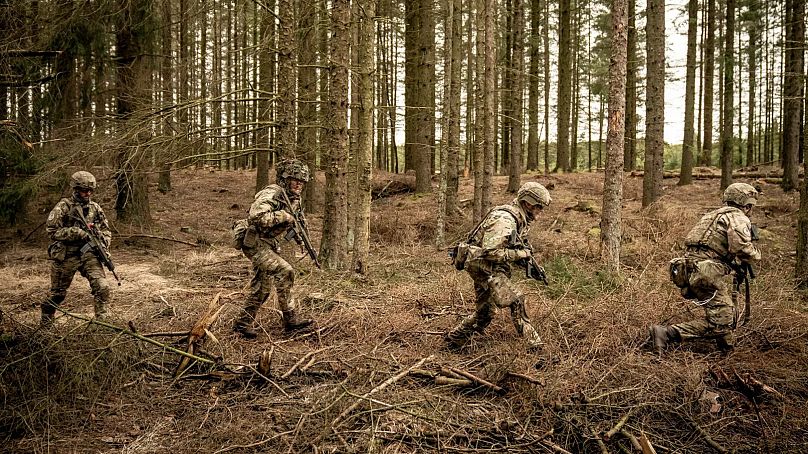
Vladimir Putin could be credited for prompting one of the most spectacular political reinventions in the bloc's recent history.
Back in 2020, Mette Frederiksen joined a small group of like-minded leaders to advocate fiscal discipline and cautious spending in the next multi-annual budget, which was then paired with the history-making COVID-19 recovery fund. The Frugal Four was thus born: Denmark, together with the Netherlands, Austria and Sweden, stood up against the expansionary vision espoused by France and Southern Europe.
Fast forward five years, and Frederiksen has switched sides.
"As Danes, we will always be tough in the negotiations on the budget," she said last month. "But being a part of the Frugal Four is no longer the right place for us."
In her view, Russia's war on Ukraine has irreversibly transformed the bloc's financial equation and put rearmament above "all other priorities and all other principles". If the EU fails to develop the capabilities to defend itself, "then it's game over", she warned.
Frederiksen is not alone in her assessment. Ursula von der Leyen has also espoused a security-first mindset and is expected to put defence spending at the core of the next multi-annual budget (2028-2034), which she will present before the summer break.
This means Denmark will be able to commence the debate on the proposed budget, take the temperature among member states and identify the first fracture lines. Germany, for example, has already ruled out common borrowing on a permanent basis.
"The categories we've had in the past still exist, so the frugals versus the rest. But the groupings are changing, who is part of the frugals is changing," says Janis Emmanouilidis, deputy chief executive at the European Policy Centre (EPC).
"A lot will depend on other member states (like Denmark) putting pressure on others who are still very much coming from a frugal approach."
Red vs green
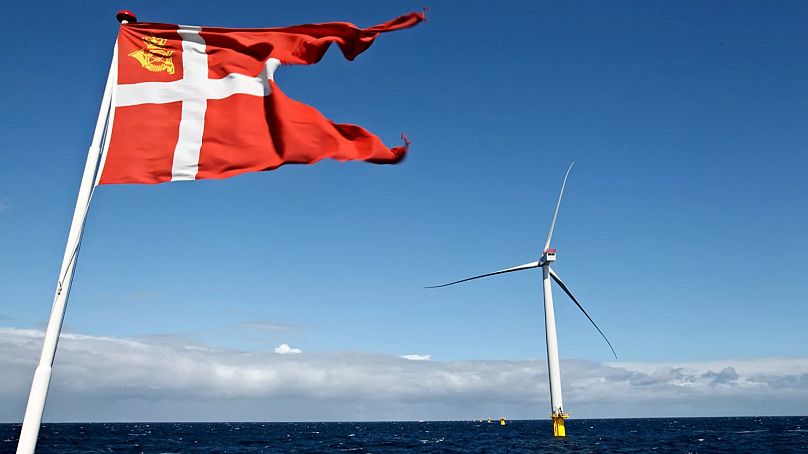
Cutting red tape has become the dominating trend in Brussels. The Commission's economic agenda is head-on focused on simplifying regulation, reducing administrative burden and making it easier for companies and investors to do business.
For many leaders, this big push should come at the expense of the Green Deal. Germany's Friedrich Merz, Italy's Giorgia Meloni and Poland's Donald Tusk are among those openly calling for certain environmental laws to be outright repealed.
Denmark disagrees with this approach and believes the green transition can go hand-in-hand with a competitive economy, drive prosperity and create high-quality jobs.
The argument is hardly surprising: the Nordic country has managed to foster growth and innovation while rapidly slashing greenhouse gas emissions and deploying renewable energy, most notably offshore wind farms, to replace imported fossil fuels. As a declaration of intent, Frederiksen has invited the College of Commissioners to visit the Laura Maersk, the world's first container ship capable of sailing on green methanol.
But with the bloc tilted to the right and the backlash against the Green Deal intensifying by the day, the presidency might soon find itself in a shrinking minority.
Going Danish
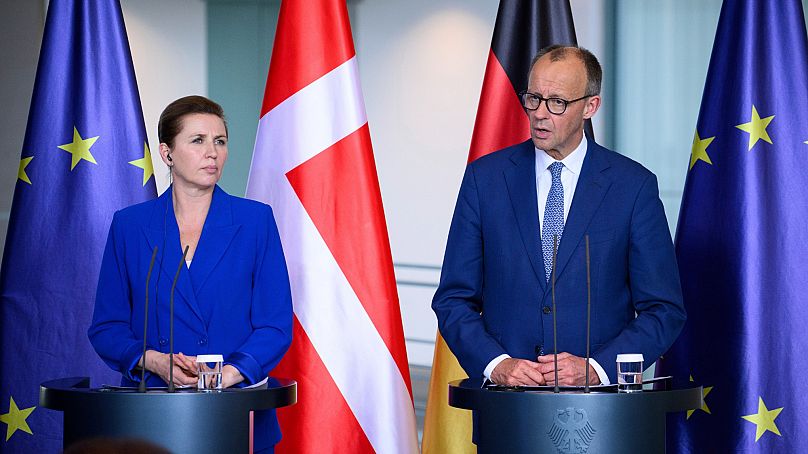
There is one policy area in which Denmark finds itself right in the mainstream: migration.
Thanks to its decades-long opt-out clause from EU migration rules, the country has been able to deviate from the norm and adopt heavily restrictive measures to curb the number of asylum seekers and maintain a relatively homogenous population.
Initially controversial, the so-called "Danish model" has become increasingly popular across the bloc, earning praise from leaders and attention from policy-makers.
"What Denmark has achieved in recent years is truly exemplary, and together we are also moving towards new and stricter asylum rules in the European Union," Merz said recently.
The Commission has dropped its long-standing hesitations and is now fully on board with exploring "innovative solutions" to manage irregular migration, including the construction of deportation centres in faraway countries to transfer rejected applicants.
Copenhagen feels vindicated and is keen to use its presidency to advance the process, even if outsourcing remains plagued with logistical, financial and legal questions.
"Denmark's model of migration control is being advertised as the gold standard and worthy of imitation because it aims to deter asylum-seekers from coming," said Céline Mias, EU director at the Danish Refugee Council (DRC).
"Political winds can shift, but our values and obligations to the rule of law and asylum seekers and refugees must not."







